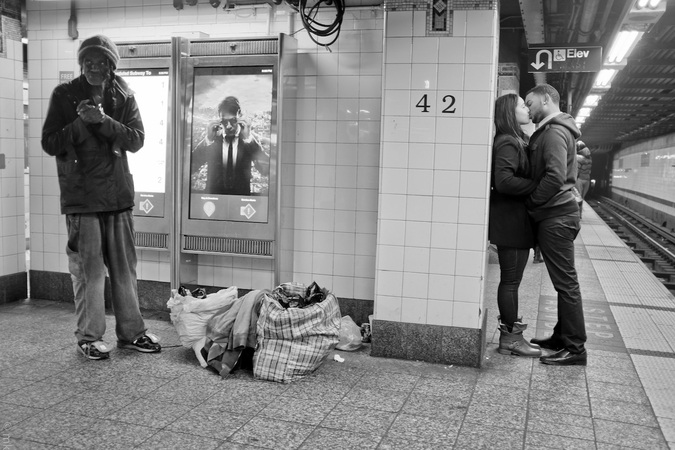Who cares if she had the name or not. Its the photographs that Lange made that matter. If she had a long conversation or not, in the long run doesn't really matter. The work matters.
Every photographer has their own way of working. If I find someone that i think has an interesting face that I think would make and interesting photograph I talk to them. I ask if I can make an picture of them. Many times I don't know if they are homeless or not. If they have an email I will send them a copy. If the don't have email and have an address I will send them a photograph. If they ae truly homeless I will usually l take a small print with me and return to the place that I last saw them.
If it's in the moment like the self absorbed couple or the trump image I will just take the photograph. I think both of those images do say something about our society today. In large cities like Chicago there are pan handlers on every block. Sometime more than one are on each block. We all become numb to it because there is so much of it so the homeless/pan handlers become almost invisible to many that pass them by. Whether anyone likes the image or thinks it's important at all is a different conversation. Like/dislike those photos is not the issue here. The fact there is something a bit deeper is why I took them. Some might find them successful in the regard; some not.
Every photographer has their own code and their own way of working and even that can change from situation to situation. There are no easy cookie cutter ways to do any of this or easy answers. All the matters in the end is the work and time will show if it can stand that test.
These are all reason, in my opinion, that we should have our own moral code but that might not be right for others. I know what I feel and what I feel is right for me and the way I work cam be much different for someone else. So I usually try not to push that one others.
Here I asked and had a nice conversation. I rarely pose and this was no exception.





